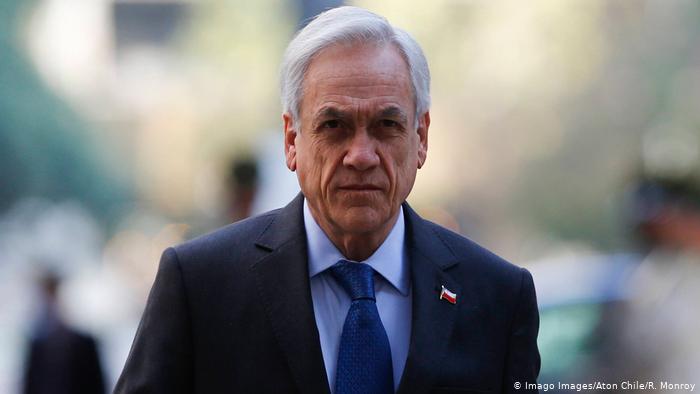RIO DE JANEIRO, BRAZIL – The President of Chile, Sebastián Piñera, stated this Sunday that the regional elections, the second round of which will be disputed this weekend, are a “historic” opportunity for the country that will elect governors, previously appointed by the president, for the first time this year.
“This is a significant and historic election. Today, for the first time, Chileans from 13 regions are going to elect their governor”, said the President, who decided not to declare his support for any candidate or to indicate his own vote.

Previously, the chief executive appointed govern which is why this is an unprecedented vote and seen by many as a crucial step towards the country’s decentralization.
In this second round, 13 of the 16 territorial divisions of the country will be disputed, as more than 13 million Chileans are called to vote, almost six million in the capital. The other three governors were already elected in the first round.
Despite the political importance of the ballot, which could shake up the presidential race, the election is expected to encourage fewer voters than the mega-elections of May, due to a drastic increase of Covid-19 infections in the last weeks that forced to quarantine the whole capital.
“It is essential that this and all elections are very participatory and safe. We have to comply with self-care. The coronavirus has slackened in Europe and the United States, but it has been raging in South America,” Piñera added.
The election comes at a complicated time for the pandemic, with a historic peak in active cases of Covid-19 (more than 62,000) and with the entire Santiago Metropolitan Region, the most populous in the country, once again under total quarantine, which could have an impact on the number of people who go to the polls.
The new governors, who will take office on July 14 for a four-year term, will become authorities and, in many cases, territorial counterpowers to centralized Santiago, where governmental and business power is concentrated.
Two left-wing candidates, Claudio Orrego and Karina Oliva face each other in the capital after managing to unseat the only pro-government candidate in the first round; they hope to become the country’s most voted candidate in this election.
Their contest confronts two polarized left sectors: Orrego belongs to the Christian Democracy party and symbolizes the more traditional wing. Oliva represents a renewed left, although with less experience as she belongs to the Frente Amplio, a coalition that split in 2017.
The importance of the governorship of Santiago increases, moreover, if one considers that the presidential elections are just around the corner, on November 21, and the governor of the capital could become a platform and the bastion of some candidate.
Oliva would tilt the axis of the opposition towards the radical left, push the pre-candidate of the Frente Amplio, Gabriel Boric, or the Communist Party’s Daniel Jadue, who is leading the polls. On the other hand, Orrego could be the figure that moves a moderate candidate.

